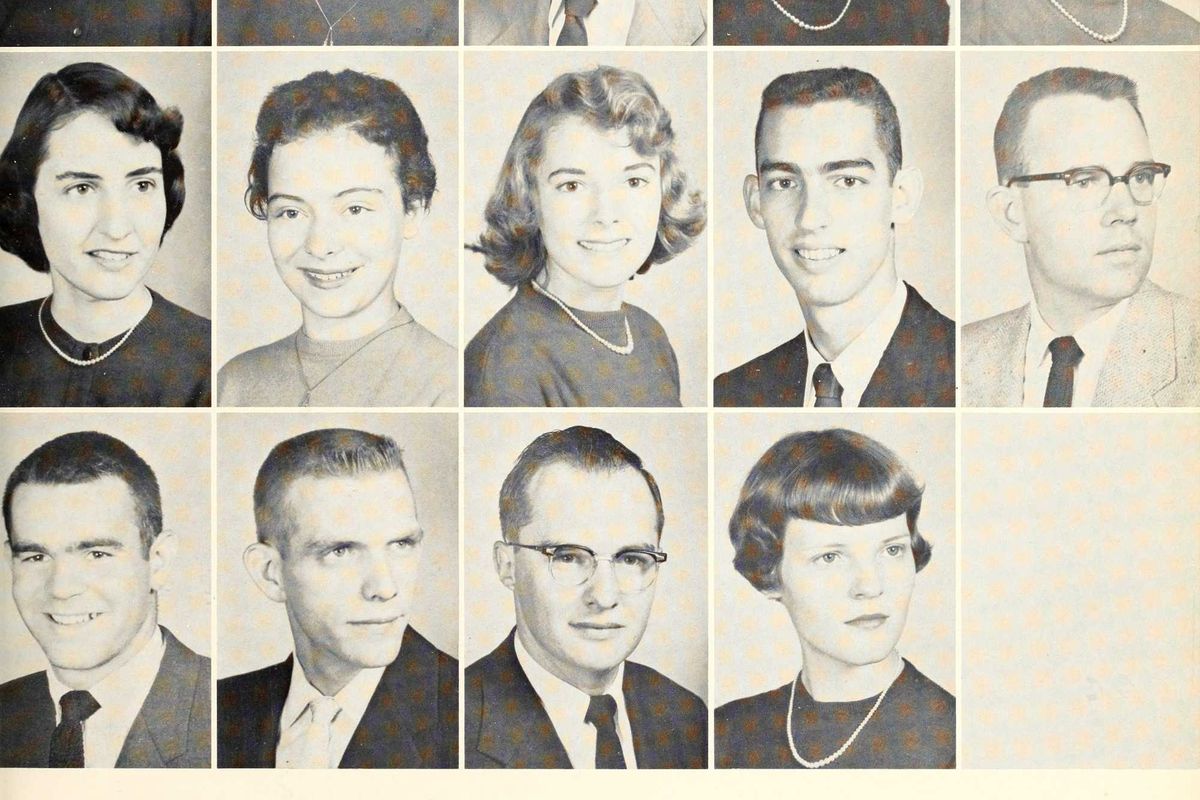People are sharing the weirdest things we accept as 'normal’ and it has people questioning reality
What will people say about us 50 years from now?

People living to work, not working to live.
If we looked 60 years into the past, there are a lot of things accepted as “normal” that today most people find abhorrent. For example, people used to smoke cigarettes everywhere. They’d light up in hospitals, schools and even churches.
People also used to litter like crazy. It’s socially unacceptable now, but if you lived in the ’70s and finished your meal at McDonald’s, you’d chuck your empty Styrofoam container (remember those?) and soda cup right out of the window of your car and onto the street.
It’s even harder to imagine that just 60 years ago, spousal abuse was considered family business and wasn't the concern of law enforcement.
It makes me wonder when people in the future look back on 2020s which things will they see as barbaric? Almost certainly, the way we treat the animals we use for food will be seen as cruel. The racial divides in the criminal justice system will be seen as a moral abomination. And I’m sure that people will also look at our continued reliance on fossil fuels as a major mistake.
A Reddit user by the name u/MEMELORD_JESUS asked the AskReddit subforum “What’s the weirdest thing society accepts as normal?” and the responses exposed a lot of today’s practices that are worth questioning.
A lot of the responses revolved around American work ethic and how we are taught to live to work and not to work to live. We seem to always be chasing some magical reward that’s just around the corner instead of enjoying our everyday lives. “I’ll get to that when I retire,” we say and then don’t have the energy or the inclination to do so when the time comes.
There are also a lot of people who think that our healthcare system will be looked at with utter confusion by people in the future.
Here are 17 of the best responses to the question, “What’s the weirdest thing society accepts as normal?”
1. Work-life balance
"Working until you're old, greying, and broken then using whatever time you have left for all the things you wish you could have done when you were younger." — Excited_Avocado_8492
2. Rest in comfort
"That dead people need pillows in caskets." — Qfn4g02016
3. I.R.S. mystery
"Guessing how much you owe the IRS in taxes." — SheWentThruMyPhone
4. You get the leaders you deserve
"Politicians blatantly lying to the people. We accept it so readily, it's as though it's supposed to be that way." — BlackLetyterLies
5. The booze-drugs separation
"Alcohol is so normalized but drugs are not. It's so weird. I say this as an alcohol loving Belgian, beer is half of our culture and I'm proud of it too but like... that's fucking weird man." — onions_cutting_ninja
6. Stage-parent syndrome
"People having kids and trying to live their lives again through them, vicariously, forcing the kids to do things that the parents never got to do, even when the kids show no inclination, and even have an active dislike, for those things." — macaronsforeveryone
7. Priorities
"Living to work vs working to live." — Food-at-last
8. 'The Man' is everywhere
"Being on camera or recorded any time you are in public." — Existing-barely
9. Tragic positivity
"'Feel-good' news stories about how a kid makes a lemonade stand or something to pay for her mom's cancer treatment because no one can afford healthcare in America." — GotaLuvit35
10. Credit score
"As a non-American, I am amazed at their credit score system. As a third-world citizen, credit cards are usually for rich (and slightly less rich) people who have more disposable money than the rest of us and could pay off their debt.
The way I see people on Reddit talk about it is strange and somewhat scary. Everyone should have a card of his own as soon as he becomes an adult, you should always buy things with it and pay back to actively build your score. You're basically doomed if you don't have a good score, and living your life peacefully without a card is not an option, and lastly, you'll be seen as an idiot if you know nothing about it." — BizarroCullen
11. The retirement trap
"Spending 5/7ths of your life waiting for 2/7ths of it to come. We hate like 70% of our life, how is that considered fine?" — Deltext3rity
12. Yes, yes and yes
"Child beauty pageants." — throwa_way682
13. That's not justice
"The rape of male prisoners. It's almost considered a part of the sentence. People love to joke about it all the time." — visicircle
14. Customers aren't employers
"Tipping culture in the US. Everyone thinks that it's totally OK for employers not to pay the employees, and the customers are expected to pay extra to pay the employees wages. I don't understand it." — Lysdexiic
15. Staring at your phone
"Having smartphones in our faces all day. This shit isn't normal...imma do it anyway...but it is not normal." — Off_Brand_Barbie_OBB
16. Homework on weekends
"Students being assigned homework over weekends and only having a two-day weekend. The whole point of a weekend is to take a break from life, and then you have one day to recover from sleep deprivation then one day to relax which you can’t because of thinking about the next day being Monday. And the two days still having work to do anyways." — MrPers0n3O
17. Kids on social media
"Children/young teens posting on social media sites. I’m not necessarily talking about posting on a private Instagram followed by friends, I’m talking about when kids post on tiktok publicly without parental consent." — thottxy
Truly, each of these entries is so spot on.
This article originally appeared three years ago.
- Andie MacDowell—what we can all learn about beauty and age ... ›
- Justine Bateman boldly embraces her aging face, putting a new spin ... ›
- Tom Wilson from 'Back to the Future' sings 'Biff's Question Song' - Upworthy ›
- People share the things they're particularly finicky about - Upworthy ›
- People share their 'unwritten rules' for being a good person - Upworthy ›



 In a 4-day model, kids often (but not always) receive less instructional time. Photo by
In a 4-day model, kids often (but not always) receive less instructional time. Photo by 


 Smiling at work, checking messages during a break.
Smiling at work, checking messages during a break. Man focused on his phone screen, deep in thought.
Man focused on his phone screen, deep in thought. Focused multitasking at the office.
Focused multitasking at the office.